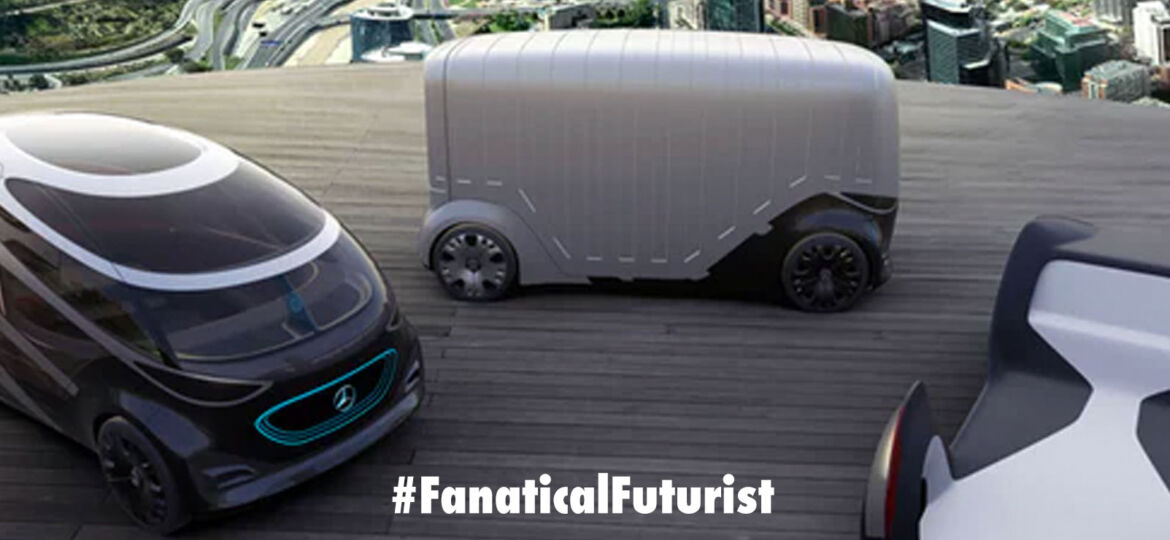
WHY THIS MATTERS IN BRIEF
As we watch the future of autonomous transportation evolve automotive companies are now experimenting with new business models and product concepts.
As more vehicles, from cars to aircraft and everything in between, become electric and autonomous Mercedez Benz decided a while ago that it was no longer a vehicle company, but a “Mobility as a Service” company, representing a seat change in the company’s thinking and positioning. Now, setting its sights firmly on the future, the company has rolled out an urban commercial vehicle concept it’s calling Vision Urbanetic. The concept, the company noted, addresses the “inherent challenges found in urban operating environments with solutions for meeting equipment needs and operational issues.” Never let it be said that Germans don’t have a way with words…
At the core of the Vision Urbanetic concept is a completely new vehicle design based on an autonomous, electrically powered driving platform that can be out fitted with a variety of interchangeable bodies capable of moving goods and people depending on what’s needed at the time.
The vehicle is based on a 17 ft all electric chassis that can be fitted with either a 12 ft cargo carrying body or a 12 passenger module, and at the same time, the network connected vehicle “incorporates an IT infrastructure with full connectivity that uses local information and intelligent controls to plan routes dynamically and more efficiently, resulting in a considerable improvement in the use of fleet resources.”
“Current transport supply and demand needs within a defined area are not based on rigid routes or fixed timetables,” the company added, and the Vision Urbanetic “has a self-learning ability for anticipating and reacting to needs, optimizing operations to shorten waiting or delivery times and avoid traffic delays.”
“Vision Urbanetic is a mobility platform in the truest sense of the word,” said Volker Mornhinweg, head of Mercedes-Benz Vans who unveiled it. “We have developed a vision that makes commercial sense for companies. Together with our customers, we are field testing technology elements and ground breaking concepts for future urban commercial vehicle mobility.”
The concept is also an expansion of the Mercedes-Benz’s adVANce initiative and underscores what it sees as the “crucial importance of autonomous driving to the future transportation of goods.”
“The objective of the adVANce initiative is to identify innovative solutions for today’s and tomorrow’s requirements together with vehicle users,” said Mornhinweg. “The goal is to create added value for customers in the areas of efficiency, speed and sustainability, and to develop new solutions quickly.”
The adVANce strategy also includes long-term cooperative agreements with up-and-coming startups aimed at systematically developing ideas in different fields of innovation.
“Together, we are able to combine our strengths and the knowledge we have acquired over the decades with new perspectives, work methods and ideas,” he added, “and we have [now] found an integrated approach that keeps pace with changing requirements, and will even be a step ahead of them.”
“We are clearly demonstrating that we are not satisfied with what we have today,” said Mornhinweg, “and we are expanding our strategy to go beyond products, we are adapting our organization and partnering models, and we are continuing to invest in innovative power solutions. The universe of our customers is changing dramatically and rapidly, so we are getting ready early and comprehensively.”
And so it looks like they are… and the company will never be the same again.
















